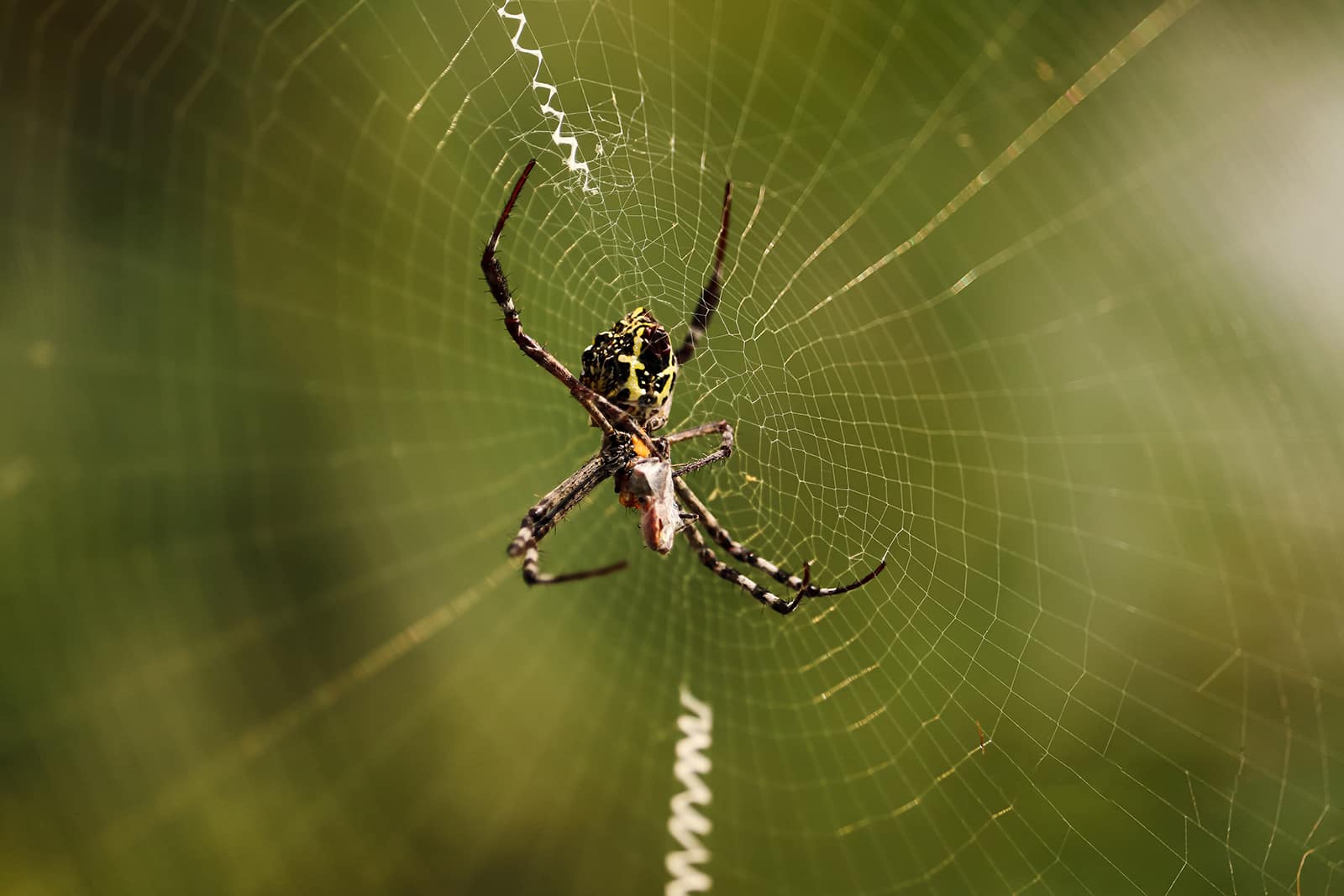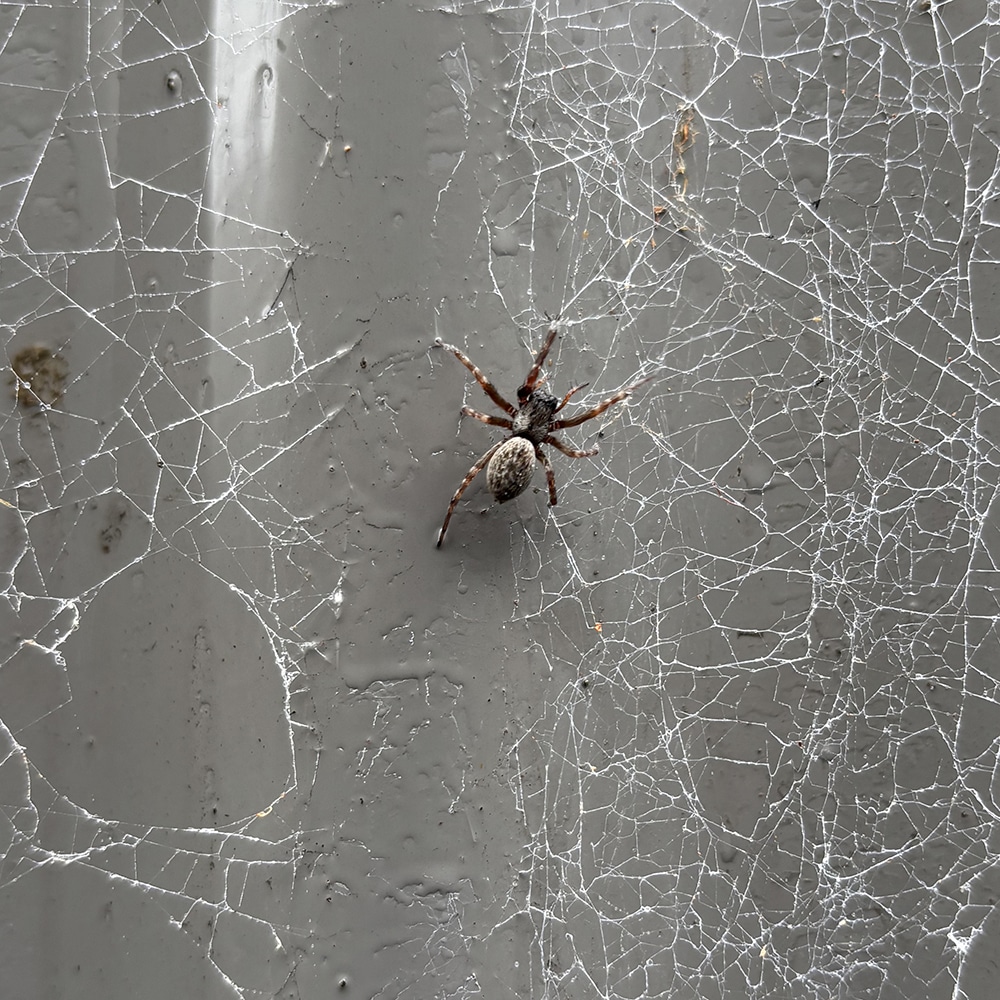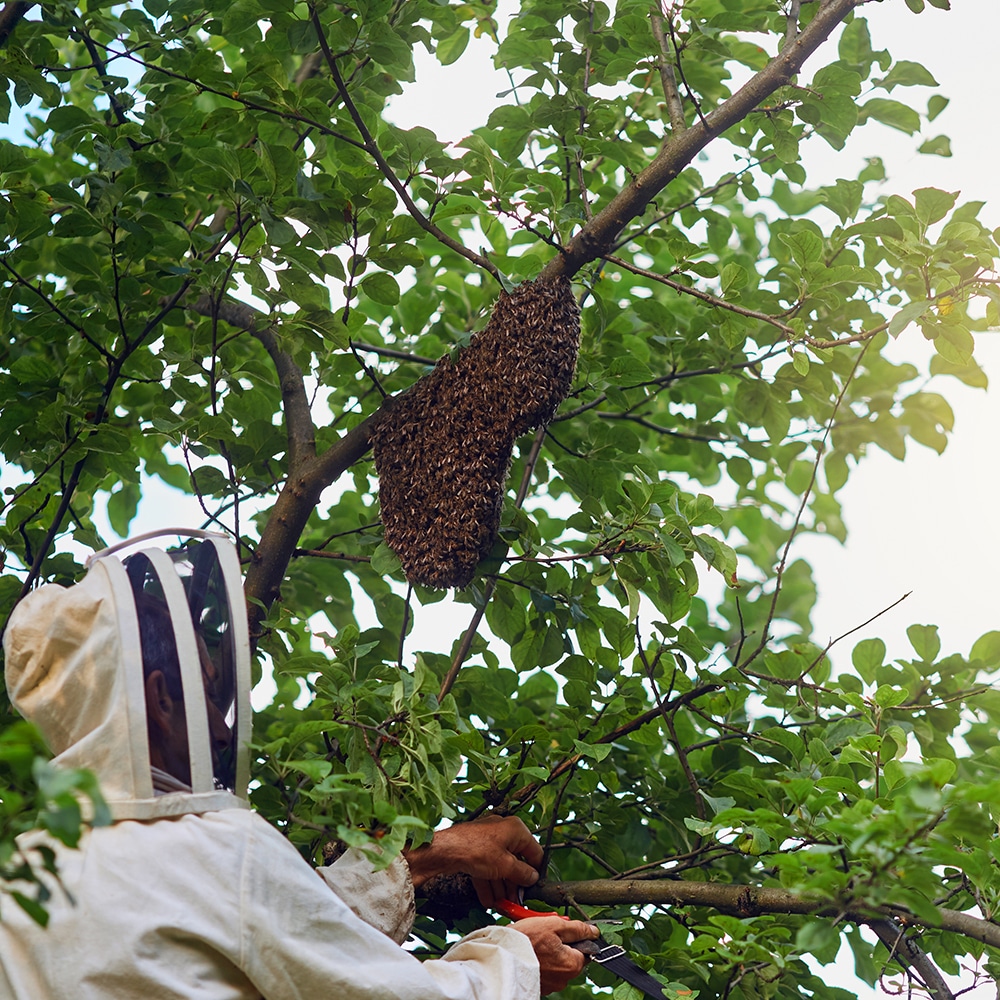
Why Do Spiders Come Back And Why
Why Do Spiders Come Back And Why On The Central Coast NSW. Responsive Proactive Solutions. Detail-focused for lasting results. Call Adam on 0431 222 894
Spiders in the house can be a nuisance, but you can keep them out with a few smart strategies. Learn how to keep spiders out of your house effectively with tips that suit Central Coast NSW homes. For expert help, visit Vital Pest Control.
Why do spiders prefer certain homes?
Spiders love homes offering warmth and food sources. Cluttered spaces attract them as they provide nesting spots. Central Coast NSW’s climate can also be inviting for these critters.
How to seal cracks and gaps to prevent spiders
Inspect and seal all cracks in walls and windows. Use caulk for small openings and weather strips for doors. This approach blocks entry points effectively.
How to use essential oils to repel spiders
Spiders dislike peppermint and eucalyptus oils. Mix a few drops with water in a spray bottle. Apply this around windows and doors to keep them at bay.
Best cleaning practices to deter spiders
Regular cleaning disrupts spider webs and hiding spots. Dust and vacuum weekly to reduce spider activity. Simple cleaning habits can make a huge difference.
Why regular vacuuming helps reduce spiders
Vacuuming removes spiders, webs, and eggs. Focus on corners and under furniture. A clean home is less appealing to spiders.
How to keep spiders out of basements
Basements can be spider hotspots. Keep them dry and clutter-free. Use dehumidifiers and store items in sealed containers.
Do ultrasonic pest repellents work on spiders?
Ultrasonic devices can deter spiders, but results vary. They emit sounds spiders dislike, reducing their presence. Consider them as part of a broader strategy.
How to make homemade spider deterrents
Create deterrents using vinegar and water. Spray this mix in common spider areas. Add lemon juice for extra repelling power.
Discover how we can help you today! Visit our Contact page for more information.

Spiders are a common concern for residents in Central Coast NSW, and understanding why these creatures prefer certain homes can help in devising effective pest control strategies. Knowing what attracts them can prevent unwanted encounters and keep your home spider-free.
Cluttered Spaces
Spiders thrive in cluttered areas where they can easily hide. Piles of boxes, old furniture, or heaps of clothes provide perfect hiding spots. These creatures love undisturbed environments, making basements and attics their favourite haunts. Regularly tidying these spaces can discourage spiders from settling in.
Abundant Food Sources
Spiders are drawn to homes with plentiful food sources. They primarily feed on insects, so if your home has a pest problem, spiders may follow. Keeping your home free of other pests reduces the attraction for spiders. Sealing food containers and cleaning up crumbs can help in controlling this issue.
Warmth and Humidity
Spiders often prefer warm, humid environments, which are common in Central Coast NSW. Leaks in plumbing or poor ventilation can create these conditions indoors. Addressing moisture issues and ensuring proper ventilation can make your home less appealing to spiders.
Understanding these preferences is key to effective spider control. By targeting these factors, you can create an environment that is less inviting to these eight-legged visitors.
Spiders can be unwelcome guests in any home, especially on the Central Coast NSW. By sealing cracks and gaps, you can effectively reduce their entry points. This not only keeps spiders out but also enhances your home’s overall energy efficiency.
Identify Entry Points
Begin by inspecting your home for potential entry points. Check around windows, doors, and foundation walls where spiders might slip through. Pay attention to areas where utilities enter your home, such as water pipes and electrical lines. Noticing these gaps is the first step in spider prevention.
Use Caulk for Sealing
Caulk is an excellent tool for sealing small cracks and gaps. Choose a high-quality silicone or acrylic latex caulk for the best results. Apply it around your windows and door frames, filling in any visible cracks. This creates a barrier that spiders cannot penetrate, keeping them outside where they belong.
Weatherstripping for Doors
Doors often have gaps that allow spiders to enter. Adding weatherstripping to the bottom and sides of your doors can help. This not only stops spiders but also keeps out drafts and other pests. Make sure the weatherstripping is snug and replace it if it becomes worn.
Seal Larger Gaps
For larger gaps, such as those around pipes or vents, use expandable foam sealant. This material expands to fill bigger spaces, providing an effective seal. It’s crucial for areas where significant gaps occur, ensuring spiders find no entry into your home.
Spiders can be unwelcome guests in your home, especially on the Central Coast of NSW. Essential oils offer a natural solution to keep these critters at bay. Their strong scents mask the chemical signals that spiders use to navigate, making them effective repellents.
Choosing the Right Essential Oils
When considering essential oils to repel spiders, peppermint oil is a popular choice. Its potent aroma deters spiders effectively. Other options include tea tree, eucalyptus, and lavender oils. Each has a distinct scent that spiders find unappealing, making them useful allies in your pest control arsenal.
Creating an Essential Oil Spray
To make an essential oil spray, mix a few drops of your chosen oil with water in a spray bottle. Shake well to blend. Spritz this mixture in spider-prone areas like corners, windowsills, and doorways. Regular application ensures that the scent remains strong, thereby maintaining its effectiveness.
Direct Application in Surfaces
For a more concentrated approach, apply essential oils directly onto cotton balls. Place these in areas where spiders tend to enter your home. This method provides a long-lasting scent barrier. Replace the cotton balls every few weeks to keep the scent fresh and spiders away.
Spiders often find their way into homes, creating a webby mess and causing discomfort for many residents. For those living on the Central Coast of NSW, where the climate can invite these eight-legged intruders, knowing the best cleaning practices is essential. Vital Pest Control offers insights on how to deter spiders through strategic cleaning.
Declutter Regularly
Spiders love cluttered spaces as they provide numerous hiding spots. Start by organising storage areas, including garages and attics. Dispose of unnecessary items to reduce potential spider habitats. Keep everything neat and ensure that items are not stacked against walls, giving spiders fewer places to hide.
Frequent Dusting and Vacuuming
Dusting and vacuuming are crucial in keeping spiders at bay. Use a vacuum with a HEPA filter for carpets, rugs, and corners where spiders may spin webs. Dusting surfaces with a damp cloth ensures removal of spider eggs and web remnants, making your home less inviting to these pests.
Seal Entry Points
Inspect your home for cracks or openings where spiders might enter. Sealing gaps in windows, doors, and walls is vital in preventing spiders from entering. Regularly check and maintain window screens and door sweeps to create a solid barrier against spider intrusion.
By implementing these cleaning strategies, you’ll create an environment less conducive to spiders, ensuring a more comfortable home free of these unwelcome guests. Vital Pest Control on the Central Coast offers further guidance for those needing additional support in keeping spiders away.
Regular vacuuming is a simple yet effective method to keep spider populations in check within your home, particularly useful for residents on the Central Coast of NSW. By incorporating this routine into your cleaning regime, you can significantly reduce the presence of these eight-legged visitors.
Eliminates Spider Webs and Egg Sacs
Vacuuming helps remove spider webs and egg sacs, which are often hidden in corners and ceiling edges. Destroying these structures prevents spiders from hatching and reduces their chances of multiplying in your home. Regularly targeting these areas makes it harder for spiders to establish a foothold.
Reduces Insect Prey
Spiders are drawn to homes where insects are plentiful, as these serve as their primary food source. Vacuuming picks up crumbs and debris that attract insects, effectively cutting off the food supply for spiders. A cleaner environment means fewer insects, resulting in fewer spiders.
Disrupts Spider Habitats
Spiders prefer undisturbed areas to spin their webs. By vacuuming regularly, especially in forgotten nooks and under furniture, you disrupt these potential habitats. This disturbance discourages spiders from settling, pushing them to seek quieter spots, ideally outside your home.
Spiders often find basements the perfect hideout. Dark corners and clutter make these spaces inviting. However, keeping spiders out of your basement is possible with a few strategic steps. Vital Pest Control on the Central Coast NSW offers some effective strategies to help maintain a spider-free zone.
Reduce Clutter
Basements tend to accumulate clutter, providing ideal hiding spots for spiders. Regularly organising and decluttering can significantly deter these pests. Store items in sealed plastic containers rather than cardboard boxes. This not only keeps things tidy but also eliminates potential spider habitats.
Seal Entry Points
Spiders can sneak in through tiny gaps. Inspect your basement for cracks or openings around windows, doors, and the foundation. Use caulk to seal these gaps. Properly fitted door sweeps are also effective in keeping spiders outside where they belong.
Maintain Cleanliness
Regular cleaning is vital. Vacuuming corners, ceilings, and floors removes spiders and their webs. Consider using a vacuum with a HEPA filter for best results. Keeping the basement dry by using dehumidifiers can also deter spiders, as they prefer moist environments.
Use Natural Repellents
Spiders dislike certain scents. Placing essential oils like peppermint, tea tree, or citrus around the basement can serve as a deterrent. Simply mix a few drops with water in a spray bottle and apply to corners and surfaces.
Ultrasonic pest repellents are popular tools for managing household pests. But when it comes to spiders, their effectiveness remains a topic of debate. Understanding how these devices work and their impact on spiders can help homeowners make informed decisions.
How Ultrasonic Repellents Function
Ultrasonic pest repellents emit high-frequency sound waves that are undetectable to human ears. These sounds aim to disrupt pests’ nervous systems, driving them away. While they target various pests, spiders might not respond as significantly due to their different sensory systems.
Spiders’ Sensory Perception
Unlike insects, spiders rely on vibrations rather than sound waves. They use their legs to detect movement and vibrations in their environment. This different sensory mechanism suggests that ultrasonic repellents might not be as effective on spiders as they are on other pests.
Effectiveness in Real-World Settings
Many users report mixed results with ultrasonic repellents. Some find a reduction in spider presence, while others notice no change. Factors like device placement, room layout, and the type of spiders can influence outcomes, making it important to consider these variables.
For those on the Central Coast NSW seeking reliable spider control, exploring a combination of methods, including regular cleaning and professional pest services, can offer a more comprehensive solution.
Spiders can be a nuisance in homes on the Central Coast, NSW. While they play an essential role in controlling other pests, having them indoors is less than ideal. Fortunately, there are simple homemade spider deterrents you can use to keep these eight-legged visitors at bay.
Natural Essential Oils
Essential oils can effectively deter spiders. Peppermint oil, with its strong scent, overwhelms spiders, encouraging them to find a new home. Mix 10 drops of peppermint oil with water in a spray bottle. Spray this mixture around doorways, windows, and corners. Reapply weekly for the best results.
Vinegar Solution
White vinegar is another handy spider repellent. Combine equal parts vinegar and water in a spray bottle. Spritz it around potential entry points. The acetic acid in vinegar disrupts a spider’s sense of smell, making your home less appealing.
Herbs and Spices
Placing herbs like eucalyptus or mint around your home can deter spiders. These plants have natural repellents that spiders dislike. You can also sprinkle cinnamon or turmeric near entryways. These spices not only repel spiders but also add a pleasant aroma to your home.
Keeping spiders at bay in your home on the Central Coast NSW can be a challenge, especially with the region’s climate creating a welcoming environment for these eight-legged visitors. Thankfully, there are effective store-bought spider repellents that can help you maintain a spider-free home. Here’s a look at some of the best options to consider for vital pest control.
Spray Repellents
Spray repellents are a popular choice for controlling spiders indoors and out. These products often contain natural oils like peppermint or eucalyptus, which spiders find unpleasant. When applied to entry points like windowsills and door frames, these sprays can create a barrier that deters spiders from coming inside. Ensure you choose a spray that is safe for use around pets and children.
Ultrasonic Repellers
Ultrasonic repellers are a modern solution for those looking to avoid chemicals. These devices emit high-frequency sound waves that are inaudible to humans but disturbing to spiders. Placing these in rooms where spiders tend to gather can effectively reduce their presence over time. They are a great option for continuous protection without the need for reapplication.
Glue Traps
Glue traps are a non-toxic option and work by capturing spiders as they move across surfaces. These traps can be placed in corners and under furniture where spiders often roam. While they don’t repel, they help monitor activity and reduce the number of spiders in your home. Regularly check and replace traps for optimal effectiveness.
Humidity plays a crucial role in spider behaviour, especially on the Central Coast of NSW. As a homeowner, understanding this connection can help in keeping these eight-legged creatures at bay. Spiders are sensitive to their environment, and humidity levels can influence their activity and presence in your home.
Influence of Humidity in Spider Habitats
Spiders seek out environments that offer the right balance of moisture. High humidity levels create ideal conditions for spiders to thrive, as it provides them with the necessary moisture to survive and hunt effectively. This is particularly true for species like the common house spider, which prefers damp areas such as basements, bathrooms, and kitchens. In contrast, low humidity can drive spiders to seek shelter indoors, where moisture levels are more consistent.
Impact in Spider Prey
Humidity also affects the availability of prey for spiders. Moist environments attract other insects, which serve as food for spiders. An increase in humidity can lead to a surge in insect populations, which in turn draws more spiders into your home. By managing indoor humidity levels, you can indirectly control the spider population by reducing the number of insects that enter your living space.
Effective Humidity Management
To keep spiders out of your house, it’s important to monitor and regulate humidity levels. Using dehumidifiers and ensuring proper ventilation can help maintain an environment that’s less appealing to spiders. By creating a less hospitable atmosphere, you discourage spiders from setting up shop in your home, thereby reducing their presence and activity.
Keeping spiders out of garages and sheds is crucial for those on the Central Coast, NSW. These areas often become havens for spiders due to their dark corners, abundance of hiding spots, and limited human activity. Implementing effective spider control measures ensures a safer, more comfortable environment.
Organise and Declutter
Start by organising your garage and shed. Remove unnecessary items to reduce hiding spots. Use clear, sealed containers for storage, making it more challenging for spiders to find refuge. Regularly sweep and clean to disrupt any webs or nests. A tidy space discourages spider habitation.
Seal Entry Points
Inspect the structure for gaps and cracks. Use caulk or sealant to close off these entry points. Pay special attention to windows, doors, and vents. Installing door sweeps can also prevent spiders from crawling in. By eliminating access, you drastically reduce spider presence.
Natural Deterrents
Natural deterrents are effective and safe. Essential oils like peppermint or eucalyptus can repel spiders. Mix a few drops with water in a spray bottle and apply to corners and crevices. Regular application maintains a spider-free zone without harsh chemicals.
Spiders often find storage areas irresistible due to the clutter and darkness that offer them ideal hiding spots. By focusing on effective strategies, you can significantly reduce spider presence in these spaces. Vital Pest Control on the Central Coast NSW shares key tips to keep storage areas spider-free.
Declutter Regularly
Spiders love cluttered spaces where they can easily weave their webs. Regularly organising and decluttering storage areas helps eliminate these perfect hiding spots. Store items in sealed plastic containers rather than cardboard boxes, as spiders can easily enter cardboard. This simple step not only deters spiders but also protects your belongings.
Seal Entry Points
Inspect the storage area for any cracks or gaps where spiders might enter. Use caulking or expanding foam to seal these openings, focusing on windows, doors, and vents. This strategy not only prevents spiders but also keeps other pests out, creating a more secure environment for your stored items.
Maintain Cleanliness
A clean storage area is less inviting to spiders. Regularly dusting and vacuuming, especially in corners and under shelving, helps remove webs and keeps spiders at bay. Use a vacuum with a HEPA filter to ensure thorough cleaning. Moreover, removing dust and debris reduces potential food sources for spiders, maintaining a cleaner environment.
Natural Deterrents
Consider using natural deterrents like essential oils, which spiders dislike. Spraying peppermint or tea tree oil diluted in water around the storage area can help repel them. These oils provide a pleasant aroma while effectively discouraging spiders from settling in your storage space.
Exterior lighting plays a significant role in attracting spiders to your property. While many homeowners on the Central Coast NSW enjoy well-lit gardens and patios, these lights can unintentionally invite spiders closer. Understanding this relationship is crucial for effective pest control.
Light Attraction and Spider Habitats
Spider attraction to light stems from their hunting patterns. Bright lights draw in insects, which are the primary food source for spiders. When your garden or porch is illuminated, insects swarm towards the light, creating a buffet for spiders. In turn, spiders establish their webs nearby to catch these unsuspecting prey. Reducing exterior lighting or opting for warmer lighting options may help minimise spider presence.
Impact of Lighting Colour and Intensity
The colour and intensity of your outdoor lighting significantly affect spider attraction. Cool, bright lights are more likely to attract insects, thus luring spiders. Switching to softer, yellow-toned lights can deter both insects and spiders. Additionally, dimming lights during non-essential hours can reduce the gathering of pests around your home.
Strategic Lighting Placement
Positioning lights strategically can mitigate spider issues. Avoid placing lights directly near windows or doors to prevent spiders from migrating indoors. Instead, focus on illuminating paths or features away from entry points. This approach helps keep spiders at bay while maintaining necessary outdoor visibility.
Dealing with spider egg sacs can be daunting. These sacs, holding hundreds of eggs, may hatch into a spider infestation if ignored. For residents on the Central Coast NSW, tackling them safely is vital. Here’s a guide to help you remove spider egg sacs effectively.
Identifying Spider Egg Sacs
Spider egg sacs often resemble tiny silk balls or blobs, typically white or cream. They can be found in corners, crevices, and tucked-away spots in your home. Recognising them early is crucial for prevention. Keep an eye out during regular cleaning to spot them before they hatch.
Precautionary Measures
Before you start, ensure you’re wearing gloves to protect your skin from potential bites or allergens. Consider wearing a mask if you’re sensitive to dust or spider silk. If you have a known spider allergy, consulting with a pest professional might be best.
Safe Removal Techniques
Use a vacuum with a hose attachment for easy removal of egg sacs. Alternatively, a stick wrapped with tape can help lift them off surfaces without direct contact. Dispose of the sac by sealing it in a plastic bag and placing it in an outdoor bin, ensuring no spiders escape.
Preventing Future Infestations
To deter spiders from laying eggs in your home, maintain a clean environment. Seal cracks and gaps in walls and windows. Regularly dust and vacuum to remove webs and deter spider activity, keeping your home spider-free.
When it comes to keeping spiders at bay in your Central Coast home, professional inspections can play a pivotal role. With the expertise of Vital Pest Control, you can ensure a thorough and effective spider control strategy. This approach not only targets visible spiders but also addresses potential breeding spots and entry points, offering a comprehensive solution to your spider woes.
Identifying Hidden Breeding Grounds
Professional inspections are crucial in identifying hidden breeding grounds that may not be obvious to the untrained eye. Experts from Vital Pest Control can locate these areas, often tucked away in dark, undisturbed spaces like attics or basements. By pinpointing these breeding sites, the risk of spider populations expanding is significantly reduced.
Effective Treatment Plans
With a professional inspection, you receive a tailored treatment plan to suit your specific needs. Rather than relying on generic solutions, experts assess the extent of the infestation and recommend targeted treatments. This ensures that the spider control measures are both effective and long-lasting, providing peace of mind.
Preventing Future Infestations
Another advantage of professional inspections is the focus on prevention. The team at Vital Pest Control not only addresses current issues but also advises on preventive measures. By implementing their guidance, you can minimise the chances of future spider infestations, keeping your home safe and comfortable.
Please leave your details in the form and we will call you back the same day.
So that we can process your enquire efficiently please leave as many details as possible and upload any relevant images. (.jpg and .png format)

Why Do Spiders Come Back And Why On The Central Coast NSW. Responsive Proactive Solutions. Detail-focused for lasting results. Call Adam on 0431 222 894

Building a Long Term Residential Pest Protection Plan For Home Owners On The Central Coast NSW. Responsive Proactive Solutions. Detail-focused for lasting results. Call Adam on 0431 222 894

How to Protect Your Home from Wasp Infestations On The Central Coast NSW. Responsive Proactive Solutions. Detail-focused for lasting results. Call Adam on 0431 222 894